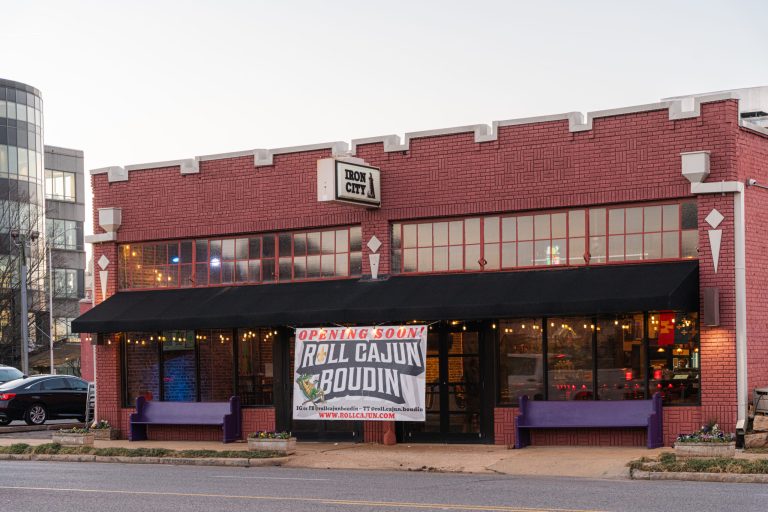Urban Land Institute of Alabama poised to boost Birmingham’s future. Find out how you can get involved.
Reading time: 6 minutes
Sponsored

The design of the City of Birmingham is constantly transforming. There are groups and organizations working with city leaders to ensure that the land within the city is shaped for its best possible use. It’s a process, and you can become a part of it by getting involved with the Urban Land Institute.

The Urban Land Institute (ULI) is the oldest and largest network of cross-disciplinary real estate and land use experts in the world. ULI is a non-profit organization that works closely with cities around the world on plans, designs, and development projects to create sustainable and healthy cities. ULI is made up of members who are dedicated to this mission, and it is through their shared expertise that they provide leadership for responsible land use that drives communities forward.

“As an organization, we are poised to help educate the public at-large about how we can build a vibrant, healthy city,” said Cathy Sloss Jones, President of Sloss Real Estate and Chair of ULI Alabama.
ULI Alabama board members include:
Jimmy Adams, Bert Amason, Dwain Boswell, Becky Carpenter, Brandon Cohen, Kevin Cook, David Fleming, Michael Foster, James Fowler, Dan Fritts, Chris Hatcher, Brandon Hill, Alex Holt, Kevin Jaquess, David Lorberbaum, Scott McClain, Randall Minor, Eric Morrison, Amy Rauworth, Bryant Rice, Cathy Jones Sloss, David Silverstein, Charles Simpson, Sloan Stevens, Merrill Stewart, Wesley Vaughn, Tom Walker
For information about ULI Alabama contact Becky Carpenter at bcarpenter@corporaterealty1.com

Through this diverse group of real-estate developers and community leaders, ULI initiates and mediates conversations regarding the plans and designs it hopes will promote more sustainable growth for the City of Birmingham.
Getting Inspired
The organization first studies best development practices that have proven successful in other cities. These ideas are then re-tooled in order to gain insight as to how Birmingham could best proceed with development.
Right Place, Right Time

Birmingham has the opportunity to be a model city for the Southeast, especially when it comes to building sustainable neighborhoods. A report conducted by ULI National lists Birmingham as one of the 50 metropolitan statistical areas (MSAs) that is primed for rapid growth because of economic opportunities and changing demographics at the city’s downtown core.
According to an article in the Urban Land Institute Magazine, the study looked at how “urban growth has accompanied the evolution of different types of urban neighborhoods, and how demographic and economic trends have shaped development.”
Using variables ranging from population and employment density to home values and vacancy rates, ULI developed six neighborhood classifications:
1. Economic centers shifting from ‘9-to-5’ activity into 18 hour or 24/7 neighborhoods.
2. Emerging or lower-density areas that are evolving into new urban economic cores.
3. Mixed-use districts with residential and retail space.
4. High-end neighborhoods with upscale, single-family residential and multi-family units.
5. Stable neighborhoods of working class families and diverse housing.
6. Challenged neighborhoods on the edge of former industrial areas that have lower home values and no development opportunities.

For anyone following downtown’s development over the last decade, it will come as no surprise that of the 50 MSAs studied, Birmingham had the second-highest number of residents living in an emerging economic center. Understanding economic and demographic trends is important when it comes to building a sustainable city and attracting diverse residents and workers. These factors will need to be taken into account while planning Birmingham’s future growth, and that’s the point ULI Alabama wants to emphasize.
“In Alabama, ULI is working on what’s best for Birmingham and our state as a whole. We are working with the Mayor’s office, the Planning Department, and others to make wise choices as it relates to the growth of our city,” Sloss Jones added.
Our own Urban Land Institute
ULI Alabama has been operating under ULI Atlanta’s umbrella, but now the organization is working to become its own stand-alone chapter. Earlier this summer, ULI Alabama held their quarterly meeting at UAB which featured keynote speaker Tim Keane, the Atlanta Commissioner of Planning. Keane discussed three key areas of importance in city planning. These include the consideration of equity (justice), dreams and opportunity, and access to nature. He spoke of how these three key areas helped formulate Atlanta’s City Design Plan.
Working with stakeholders and partners throughout the city, ULI Alabama will replicate similar discussions and planning opportunities, as they have done in Atlanta. However, the creation of Birmingham’s plan will give extra consideration to opportunities that are unique to the city and the state.
Get Involved

There are a number of ways to get involved at the local level in ULI Alabama. The organization is looking for people to participate in upcoming events, become members, join committees, and give feedback on how ULI Alabama can best serve the real estate industry and regional communities. There also are sponsorship opportunities available for ULI Alabama events and conferences.
“Our goal as an organization is to help Birmingham become a vibrant, equitable, and healthy city by presenting best practices from around the country and by lending support to communities and city leaders in an effort to articulate a unified vision for our growth and sustainability,” said Sloss Jones.
To find out more about ULI Alabama, please contact Becky Carpenter, ULI Alabama Board member, via email at bcarpenter@corporaterealty1.com .
~ This story was written by Bham Now writer Kara Kennedy
Sponsored by:




